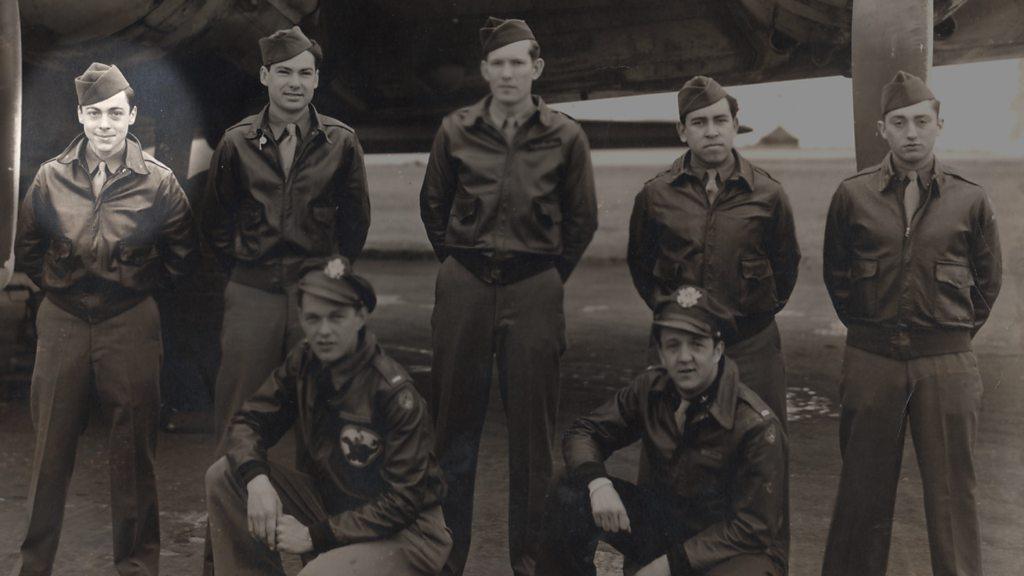Seven dead in Connecticut vintage B-17 WWII bomber crash
- Published
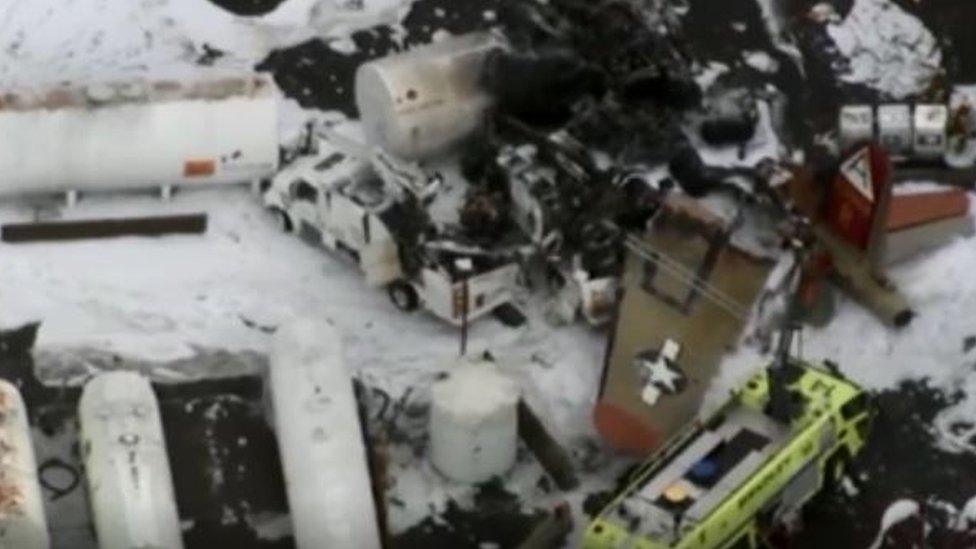
A plane wing is seen among the wreckage
A rare World War Two-era plane has crashed at an airport in the US state of Connecticut, killing seven people.
Thirteen people were on board the vintage Boeing B-17 - dubbed the Flying Fortress - when it went down and burst into flames minutes after take-off outside Hartford on Wednesday.
The aircraft was civilian-registered and was not being flown by the US military, aviation officials say.
Experts say only about 10 B-17 planes are still being flown around the US.
State Police Commissioner James Rovella told reporters at a news conference, adding: "Victims are very difficult to identify, we don't want to make a mistake."
The B-17 flight departed at 09:45 local time (14:45GMT). Five minutes later it reported having difficulties. The crash occurred near the Bradley International Airport at 09:54.
"We observed that the aircraft was not gaining altitude," said Connecticut Airport Authority Executive Director Kevin Dillon.
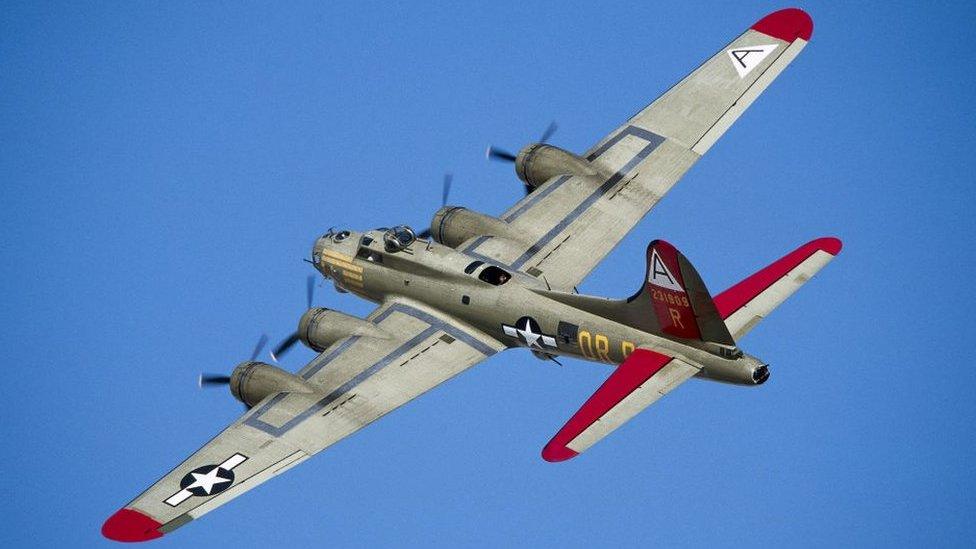
The B-17 was considered state-of-the-art when it was first introduced in 1936
Witness Antonio Arreguin told NBC News that he felt the heat from the fire 250 yards (229m) from the crash site.
"In front of me, I see this big ball of orange fire, and I knew something happened," said Mr Arreguin.
Angela Fletcher, who lives about a half-mile from the airport, told the Hartford Courant newspaper: "It sounded like an 18-wheeler coming down the street and then it got louder.
"Like so loud, it was vibrating things in the house. I looked out the window, and I saw this giant old plane come over the house that was very close."
According to the Federal Aviation Administration (FAA), the plane crashed at the end of a runway during an attempted landing.
The Collings Foundation, a non-profit that owned the plane, said it was scheduled to participate in a "Wings of Freedom Tour" at the airport later this week.
'Stirring symbol'
Jeremy Kinney, the curator for World War Two aviation at the Smithsonian Air and Space Museum in Washington DC, says only about 10 B-17 planes are still considered "airworthy", while another 40 or so exist in museums and private collections.
Mr Kinney tells BBC News that the strategic bombers were famous for their "ability to take the air war to the Nazis".
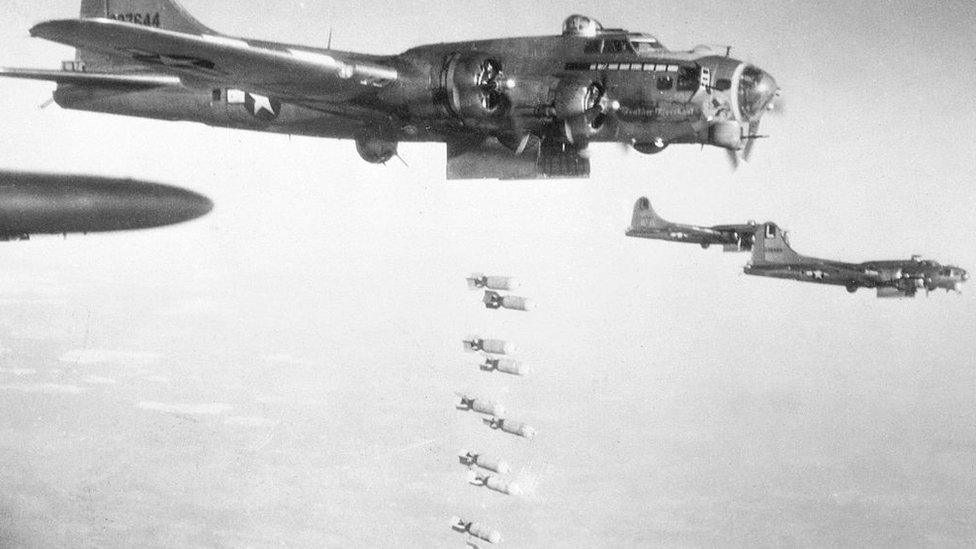
A B-17 bombing run over Nazi Germany on Christmas Eve, 1944 (FILE)
They played a "central role" in the campaign over Europe, he says, adding that they became a "stirring symbol" for allied fighters.
The aircraft's nickname comes from a newspaper reporter who dubbed it a "flying fortress due to all the machine guns that were protruding from the body" as well as its reputation for delivering US airmen home safely after missions flown from England and Italy.
It could carry up to 13 50-calibre machines guns and 4-8,000lbs (1,800-3,600kg) of bombs.
When it was first introduced in 1936 it was considered state-of-the-art, but by the end of World War Two it had largely been replaced by the B-29 "Super Fortress".
American B-17 Flying Fortress bomber pilots honoured
"They are one of the most popular and one of the most important airplanes that people want to see," says Mr Kinney, adding that aviation fans also come to hear the "lumbering sound" of the plane's four engines.
"It's an iconic symbol of World War Two."
- Published19 June 2019
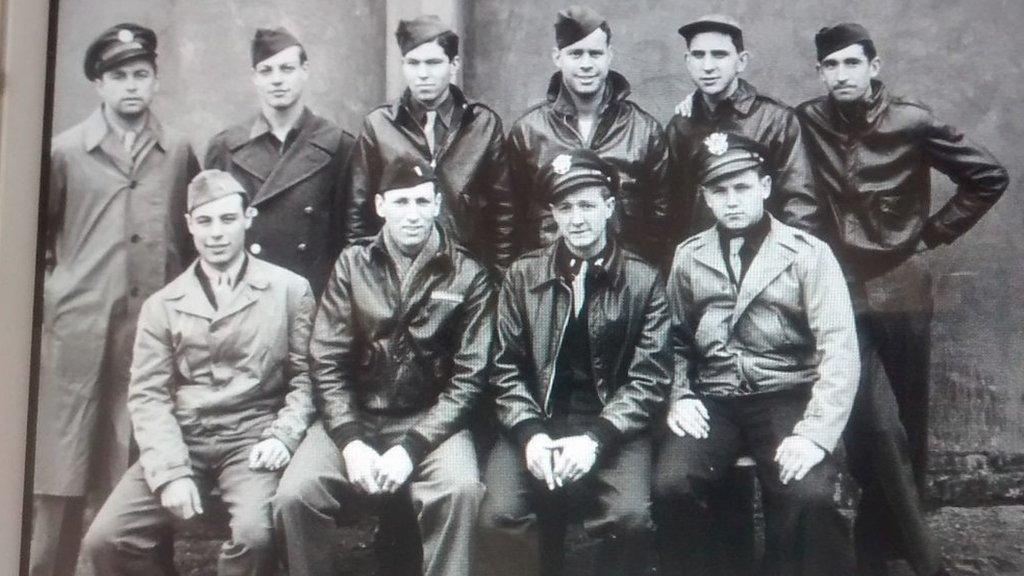
- Published2 December 2018
